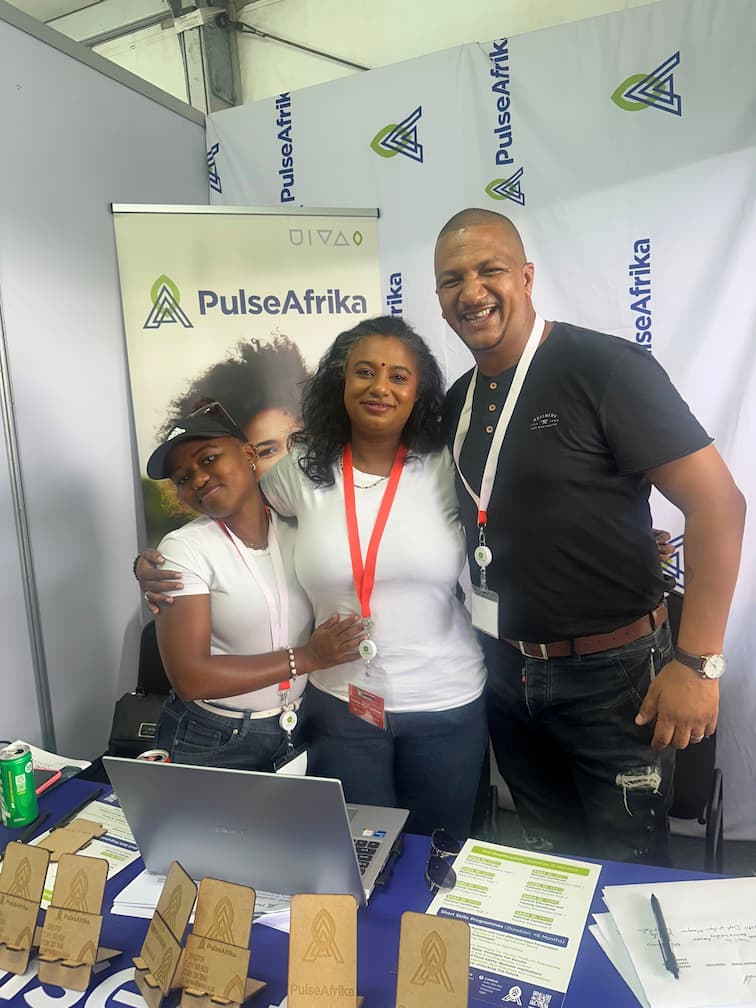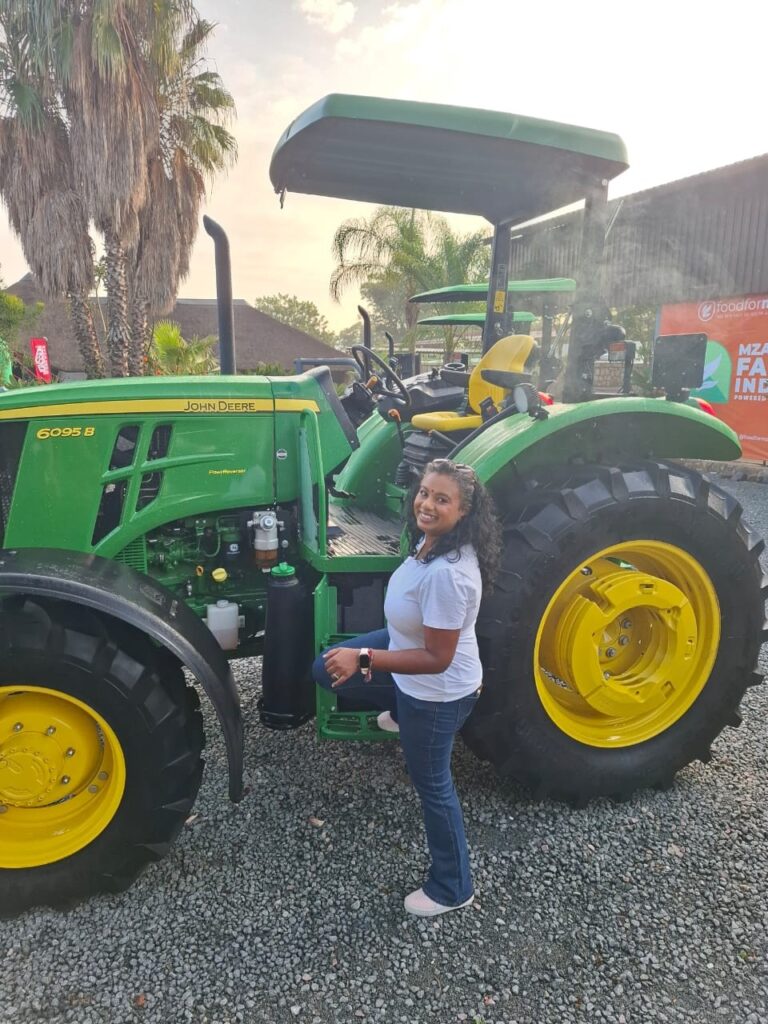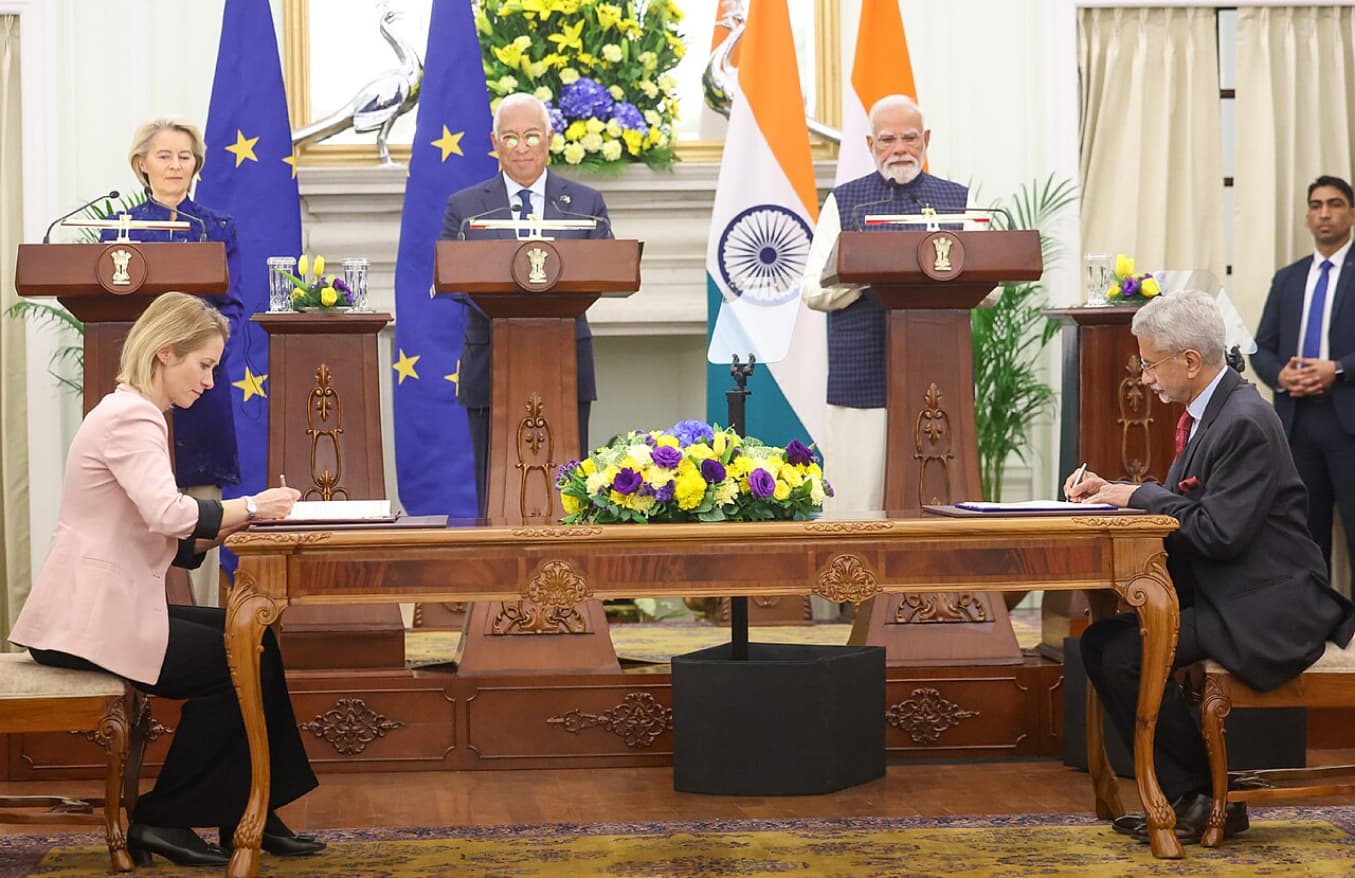“Service to mankind is my purpose, and sustainable agriculture is my mission. No one should go to bed hungry.”
In the heart of Sandton, South Africa, a powerful transformation is taking root—one that bridges the gap between ancient wisdom and cutting-edge innovation, between individual compassion and systemic change. At the center of this movement stands a woman whose journey from banking corridors to agricultural fields exemplifies the profound impact of purpose-driven leadership in Africa’s evolving food landscape.
Karmini Pillay-Rangan, Director of Pulse Afrika, carries within her the essence of seva—selfless service—a Hindu principle that has guided her from childhood memories of her father’s kitchen to boardrooms where she now champions sustainable agriculture across the continent. Her story is not just one of professional achievement, but of personal mission: ensuring that no one goes to bed hungry while empowering communities to create their own pathways to prosperity.
The Hunger Fighter’s Origin Story: When Banking Met Seva
The seeds of Karmini’s agricultural calling were planted decades ago in Durban, where she witnessed something extraordinary every December. Despite modest means, her father would cook generous meals in large degs at home, and the family would drive to the Durban beachfront to feed those sleeping there—offering warmth, dignity, and nourishment to strangers in need.
“Growing up, I was blessed to have a front-row seat to something truly magical,” Karmini recalls, her voice carrying the warmth of those cherished memories. “Every December, despite the challenges our family faced and no matter how tight money was, my dad would open his heart—and our humble home—to feed the poor. He would always say, ‘No one should go to bed hungry.’ Those words weren’t just a motto—they were a deeply ingrained value that defined how I saw the world.”
Her father’s sudden passing last year became a pivotal moment, transforming grief into purpose. Rather than simply mourning his legacy, Karmini chose to live it—infusing it with a sustainable vision that aims to create lasting change. She credits much of her strength and progress to the unwavering support of her business partners, Byron Lazarides and Ruval Boosi, who stood by her and championed her vision for Pulse.
“I realized that I couldn’t just mourn his legacy—I had to live it,” she explains. “That’s how Pulse Afrika was born: a way to continue his work, but focusing not just on now, but on empowerment, sustainability, and long-term change.”
This transition from the financial sector to agriculture wasn’t without its challenges. As a South African Indian woman entering a field that has been historically white and male-dominated—a lingering legacy of apartheid—Karmini confronted deep-rooted skepticism and cultural expectations. In South Africa, Indian women are often steered toward roles deemed “suitable,” rarely venturing into agriculture or its educational spaces. Yet, her diverse professional background—spanning over a decade in banking and insurance—equipped her with unique insights into the economic dimensions of agricultural development.
“The biggest challenge has been breaking stereotypes, especially as a South African Indian woman in agriculture,” she acknowledges. “People doubted I belonged in this space, but I stayed persistent and built partnerships that opened doors. Every obstacle became a lesson, and every lesson made me stronger.”
The AgriTech Alchemist: Turning Ancient Wisdom into Digital Gold

At Pulse Afrika, Karmini has pioneered an approach that seamlessly weaves together ancestral agricultural wisdom with Fourth Industrial Revolution technologies. Her methodology recognizes that sustainable food security requires both deep roots in traditional practices and branches that reach toward digital innovation.
“It’s a dance between honoring the past and embracing the future,” she explains. “We combine ancestral knowledge with new technology—using composting alongside digital monitoring tools. It’s about respecting the wisdom of our elders while ensuring agriculture remains sustainable and efficient.”
The organization’s training programs extend far beyond basic farming techniques. Karmini has championed artisan training that transforms raw agricultural products into value-added goods, creating multiple income streams for farming communities.
“Artisan training is where creativity and empowerment meet!” she enthuses. “It’s not just about growing crops—it’s about transforming them into products that tell a story. We train women and youth to turn fruits into jams, herbs into teas, and even raw ingredients into natural cosmetics. It’s about creating pride and purpose, sparking local economies, and showing people that they have the power to innovate.”
The WhatsApp Warrior: Making 4IR Work for Rural Communities
Karmini’s embrace of digital solutions reflects her understanding that technology should democratize opportunity rather than create additional barriers. Under her leadership, Pulse Afrika has integrated mobile apps, WhatsApp learning groups, and real-time data systems into their training programs.
“The 4IR has been a game-changer for us!” she explains. “We’ve embraced digital learning platforms, mobile apps, and real-time data solutions. Imagine a farmer receiving an SMS alert about an incoming storm or using a WhatsApp group to learn new techniques. Technology shouldn’t be a barrier—it should be a bridge to opportunity, making agriculture accessible and future-ready.”
This technological integration serves a larger philosophy of meeting communities where they are, rather than expecting them to adapt to external systems. WhatsApp groups have become virtual classrooms, mobile apps provide crucial market information, and digital platforms offer flexible learning opportunities that work around the realities of rural life.
“We’re making technology simple and impactful,” Karmini notes. “It’s all about using tech not as a luxury, but as a necessity to empower and connect.”
The Seva CEO: Leading with Laughter, Coffee, and Unshakeable Values
Karmini’s leadership style is deeply influenced by her Hindu values and her experience as both a mother and professional. She identifies five core principles that have shaped her journey: seva (selfless service), resilience, inclusivity, innovation, and humility.
“My journey has been shaped by values that aren’t just guiding principles—they’re a way of life,” she explains. “Seva, or selfless service, is at the heart of everything I do. It reminds me every day why I get up and give my all. These values don’t just guide me—they fuel my passion and give purpose to Pulse Afrika’s mission.”
As a director, Karmini cultivates an environment where innovation flourishes through psychological safety and collaborative spirit. Her approach recognizes that breakthrough solutions often emerge from the intersection of diverse perspectives and creative risk-taking.
“I create a space where ideas flow freely and laughter fills the room!” she describes. “Innovation thrives when everyone feels safe to contribute. At Pulse Afrika, we encourage risk-taking, celebrate learning from setbacks, and support creative thinking. It’s not just about coming up with ideas—it’s about turning them into reality, with curiosity and collaboration as our compass.”
Breaking Barriers, Building Bridges: The Mother-Mentor Revolution
Karmini’s commitment to women’s empowerment extends beyond program design to personal mentorship and advocacy. She recognizes the critical role that women play in Africa’s agricultural transformation and works actively to amplify their voices and expand their opportunities.
“Women are the backbone of agriculture!” she declares. “We bring empathy, resilience, and a deep understanding of community needs. I’ve seen firsthand how women, when given the chance, become pillars of strength for their families and communities. At Pulse Afrika, we prioritize mentoring and amplifying women’s voices, ensuring they’re not just heard but valued. When women lead, communities don’t just survive—they thrive.”
Her perspective is deeply informed by her role as a mother to two daughters, who serve as daily reminders of the long-term impact of her work. This intergenerational lens shapes both her strategic vision and her day-to-day decision-making.
“As a South African Indian woman breaking ground in agriculture, I feel a deep responsibility not just to today’s women, but to the next generation—especially my two little girls,” she reflects. “They’re my daily reminder that we’re building something bigger than ourselves. My dream is to create a world where they—and countless other young girls—can step confidently into leadership, unafraid to claim their space, and reshape the future of sustainable agriculture for generations to come.”
The 900-Household Game Changer: Scaling Hearts and Harvests
One of Karmini’s most significant achievements has been her ability to design scalable programs that balance ambitious vision with practical implementation. Her approach to public-private partnerships reflects a sophisticated understanding of how different sectors can complement each other in creating systemic change.
“Collaboration is everything!” she emphasizes. “Public-private partnerships are the engine behind meaningful change in agribusiness. Government has a responsibility to create policies and support systems that uplift its citizens—whether through land reform, funding, or education. At the same time, private partners have a key role to play. Many corporates are committed to transformation and adhere to Employment Equity codes and skills development obligations, which create real opportunities for change.”
This collaborative approach is exemplified in Pulse Afrika’s outgrowers programme, developed in partnership with both public and private entities. The initiative is designed to impact 900 households in rural South Africa, helping them transition from subsistence farming to sustainable agricultural enterprises.
“This initiative is set to impact 900 households in rural South Africa, helping them move from subsistence to sustainability,” Karmini explains. “Imagine what that means—900 families empowered to put food on their tables, generate income, and create better lives for themselves. It’s not just about farming; it’s about restoring dignity and creating resilience. Every household in this programme represents a ripple of positive change that extends far beyond agriculture.”
The Story Collector: Why Smiles Matter More Than Spreadsheets
While Karmini appreciates the importance of quantitative metrics, her definition of success encompasses qualitative transformations that often defy easy measurement. Her approach reflects a deep understanding that sustainable development requires attention to both statistical outcomes and human dignity.
“Success isn’t just numbers—it’s the smiles, the stories, and the transformations,” she explains. “It’s the woman who started a small business, the family that can afford school fees, and the cooperative supplying local markets. Metrics are important, but impact is measured by lives changed and communities strengthened. Seva—selfless service—keeps me focused on what truly matters.”
This holistic approach to impact measurement extends to her understanding of inclusive growth, which she sees as fundamentally about listening and co-creation rather than top-down program implementation.
“The key is to listen—truly listen,” she advises. “Communities know their needs. Inclusivity isn’t about ticking boxes; it’s about co-creating solutions that give everyone a seat at the table. Representation matters, especially for women like me breaking barriers. I sit at the table and I am fully aware that as different as I am, my voice and input matters.”
Vertical Dreams, Continental Vision: The School-to-Africa Pipeline
Karmini’s future plans for Pulse Afrika reflect both immediate community needs and long-term continental aspirations. Her upcoming Vertical Grow Towers initiative in schools addresses the immediate challenge of child nutrition while building agricultural literacy for the next generation.

“Most in South Africa have children that do not have lunch, as their families cannot afford it,” she explains. “Schools that have their own vertical towers can grow their own vegetables that they can incorporate in their school lunches. Children need sustenance to do well; my plan is to make sure I teach them how to grow their own and become self-sufficient.”
Beyond immediate interventions, Karmini envisions scaling Pulse Afrika’s model across the African continent, creating a network of empowered communities that can share knowledge, resources, and innovations.
“My dream is to replicate our model across Africa, ensuring that no one goes to bed hungry and that every community has the tools to thrive,” she states, her vision encompassing both practical programs and systemic transformation.
The Purpose Pioneer’s Playbook: Fearless Career Reinvention
For young women considering careers in agriculture and development, Karmini offers both encouragement and practical wisdom drawn from her own journey of professional reinvention.
“Be fearless, stay curious, and lead with integrity. This space is yours to claim!” she advises. “One of the most important lessons I’ve learned is that you can change what you do at any time in your life. I came from banking and insurance into agriculture and agripreneurship—a space I once never imagined I’d be in. But I realized that no space is off-limits if you come with a purpose.”
Her advice reflects her own experience of navigating career transitions while maintaining authentic commitment to service and impact.
“Find mentors, surround yourself with supporters, and remember that leadership is about purpose, not position. Don’t be afraid to rewrite your story. You have the power to create change, and every step you take—no matter how small—brings you closer to that dream. So own your voice, embrace your unique journey, and show the world just how much impact you can make.”
The Daily Dose of Hope: Coffee, Compassion, and Continental Change
What sustains Karmini through the challenges of leading systemic change is a combination of personal relationships, spiritual grounding, and simple daily pleasures that keep her connected to her fundamental motivations.
“My family, my faith, and the simple joys of life keep me going,” she shares. “My daughters and husband are my anchors, and my Hindu values remind me of my purpose. Seva—service—isn’t just what I do; it’s who I am. I am intentional every day, and am hyper conscious that I am a leader, and leaders have a responsibility to inculcate values and provide directive for future generations. And of course, sharing a cup of coffee, and a lot of times food and laughter with my team keeps the spirit alive!”
Through Pulse Afrika, Karmini Pillay-Rangan is proving that the most profound agricultural innovations often emerge not from laboratories or corporate boardrooms, but from the intersection of deep compassion, strategic thinking, and unwavering commitment to service. Her work demonstrates that sustainable food security requires more than technical solutions—it demands leaders who understand that feeding people is ultimately about nourishing hope, dignity, and the fundamental human capacity for growth.
As she continues to expand Pulse Afrika’s reach and impact, Karmini carries forward her father’s simple yet revolutionary belief: no one should go to bed hungry. In her hands, this principle has become both a practical program and a transformational vision, proving that sometimes the most powerful changes begin with the most fundamental acts of compassion.






